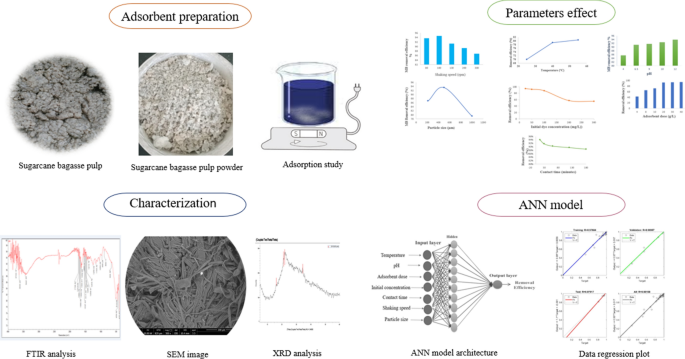Discover the Ingenious Benefits of Products From Sugarcane for Sustainable Living
Sugarcane has actually become a critical resource in the quest for sustainable living. Its varied applications extend biodegradable product packaging, eco-friendly power, and healthier food choices. As industries seek environment-friendly options, sugarcane's flexibility supplies encouraging remedies. The real potential of sugarcane expands past its present usages. Exploring its innovative advantages can disclose brand-new paths towards a much more sustainable future. What other possibilities might this exceptional plant hold?
The Rise of Sugarcane as a Lasting Resource
As international recognition of environmental concerns grows, sugarcane has actually become a prominent lasting resource. This functional crop supplies a range of benefits that add to green methods. Sugarcane is a sustainable source, qualified of prospering in diverse climates while absorbing co2, thus mitigating greenhouse gas discharges. Its fast development cycle enables frequent harvesting, resulting in a continuous supply of raw material.Additionally, sugarcane farming frequently calls for much less water contrasted to various other crops, making it an efficient alternative in water-scarce regions. The by-products of sugarcane, such as bagasse and molasses, can be repurposed for various applications, minimizing waste and promoting round economy principles. Improvements in agricultural methods have led to more sustainable farming approaches, better boosting sugarcane's ecological account. As customers progressively look for lasting options, sugarcane attracts attention as a feasible option for those committed to reducing their ecological impact.
Biodegradable Packaging Solutions
Just how can naturally degradable product packaging options change the method consumers approach sustainability? By using sugarcane-based products, these cutting-edge remedies supply an engaging option to typical plastics. Eco-friendly product packaging made from sugarcane decays normally, noticeably lowering garbage dump waste and greenhouse gas exhausts. As customers become significantly knowledgeable about their ecological impact, the need for lasting product packaging remains to rise.These sugarcane-derived items not just offer practical objectives however also straighten with eco-conscious customer worths. They offer a substantial method for people and services to contribute to a round economy, promoting resource performance and minimizing ecological footprints. Additionally, as sectors embrace biodegradable alternatives, they promote a society of sustainability that resonates with a growing market looking for accountable choices.In significance, biodegradable product packaging solutions from sugarcane stand for an important progression in lasting practices, equipping consumers to make eco-friendly decisions without compromising comfort or high quality.
Renewable Energy Generation From Sugarcane
A significant section of renewable resource generation can be stemmed from sugarcane, showcasing its adaptability past traditional farming uses. Sugarcane biomass, consisting of bagasse and leaves, is a powerful resource for bioenergy manufacturing. This biomass can be converted right into biofuels such as ethanol, which offers as a cleaner alternative to nonrenewable fuel sources. In addition, the combustion of sugarcane results produces heavy steam and electrical power, supplying a power source for sugar mills and neighboring communities.The growing of sugarcane likewise adds to carbon sequestration, as the plants absorb carbon dioxide throughout their growth cycle. By making use of sugarcane for power, waste is minimized, and lasting practices are urged. This renewable energy method not just sustains power demands but also promotes country development, producing tasks in bioenergy markets. Generally, sugarcane stands out as an essential gamer in the change to lasting power remedies, lining up with worldwide efforts to minimize carbon impacts.

Eco-Friendly Textiles and Fabrics
Eco-friendly fabrics and materials derived from sugarcane offer an appealing option to conventional products. These naturally degradable options not just decrease ecological effect but likewise provide toughness and performance equivalent to conventional textiles. Lasting manufacturing processes even more boost their charm, making them an essential component of a lasting way of living.
Eco-friendly Textile Choices
Why is the modification towards biodegradable material choices necessary for sustainable living? The boosting awareness of ecological degradation has motivated a look for choices to traditional fabrics, which frequently add to contamination and waste. Naturally degradable textiles, originated from renewable energies such as sugarcane, provide an encouraging service. These products break down normally, decreasing landfill build-up and minimizing ecological effect. In addition, they can aid reduced carbon footprints and reliance on fossil gas. As consumers become much more eco-conscious, the need for sustainable fabrics grows, encouraging producers to introduce and spend in naturally degradable alternatives. This modification not just sustains lasting techniques yet additionally fosters a circular economic situation, paving the way for a much more accountable method to fashion and textile production.
Sturdiness and Performance
When evaluating environmentally friendly textiles and materials, toughness and efficiency are essential factors. Sugarcane-derived materials demonstrate impressive stamina and resilience, making them appropriate for various applications. These fabrics usually show superior moisture-wicking residential properties, which improve convenience in day-to-day wear. Furthermore, their natural fibers add to breathability, ensuring that garments remain wearable and fresh even in requiring problems. The performance of sugarcane-based textiles includes their resistance to tear and use, permitting products to maintain their honesty with time. Moreover, these environmentally friendly textiles can be dealt with to improve UV protection and discolor resistance, fulfilling the functional needs of customers without jeopardizing sustainability. Ultimately, sugarcane materials provide a harmonious balance of resilience and efficiency, appealing to ecologically aware people.
Sustainable Manufacturing Processes
The remarkable resilience and efficiency of sugarcane-derived textiles are complemented by sustainable production processes that prioritize environmental duty. These processes utilize renewable energies, reducing reliance on nonrenewable fuel sources and reducing carbon impacts. By taking advantage of the byproducts of sugarcane farming, suppliers can develop eco-friendly fabrics while advertising waste decrease. Advanced methods, such as water-efficient dyeing and eco-friendly therapies, further enhance the sustainability of these textiles. Furthermore, the usage of safe chemicals guarantees that the manufacturing process does not harm ecosystems or human health and wellness. This commitment to sustainability not just attract ecologically conscious customers yet likewise sustains neighborhood economies by promoting lasting agricultural practices. Generally, sugarcane-derived textiles represent a significant action in the direction of a greener future in the style this website market.
Sugarcane-Based Biofuels and Their Impact

Sugarcane-based biofuels have actually arised as a considerable alternative power resource, providing an eco-friendly solution to the globe's growing power needs. These biofuels, stemmed from the fermentation of sugarcane juice or molasses, present an even more sustainable choice compared to nonrenewable fuel sources. Their manufacturing process produces reduced greenhouse gas discharges, adding to environment change reduction efforts.Additionally, sugarcane biofuels can boost energy safety by branching out energy sources and lowering reliance on imported oil. The growing of sugarcane also advertises country development, producing work and boosting neighborhood economies.However, problems relating to land usage and food competitors persist, as raised biofuel manufacturing might influence food supply chains. Sustainable farming methods are necessary to stabilizing these guaranteeing and completing interests that biofuel production does not weaken food protection. Overall, sugarcane-based biofuels represent an appealing method for a greener power future, provided that their environmental and social implications are thoroughly handled.
Much Healthier Alternatives: Sugarcane in Food Products
While numerous customers look for much healthier alternatives in their diets, sugarcane products offer a healthy alternative to improved sugars and artificial sugar. Derived from the natural extraction of sugarcane juice, these items preserve vital nutrients, consisting of nutrients, that are usually shed in processed sugars. Sugarcane contains antioxidants and nutritional fiber, adding to total health and wellness and wellness.Many health-conscious people are turning to sugarcane syrup and jaggery, internet which provide a lower glycemic index contrasted to conventional sugars, making them suitable for those taking care of blood sugar level levels. Furthermore, sugarcane-derived sweeteners can enhance the flavor of different dishes without the unfavorable effects connected with artificial additives.This change towards all-natural sweetening representatives not just promotes far better nutritional options however also lines up with lasting living practices, as sugarcane is a renewable resource. Therefore, sugarcane items are becoming beneficial alternatives in the domain name of food.
The Future of Sugarcane in Sustainable Technologies
The future of sugarcane is poised to incorporate cutting-edge applications that extend past typical usages. Its prospective as a source for biodegradable packaging remedies and renewable resource resources highlights its function in lasting practices. Checking out these improvements might considerably affect ecological preservation and resource monitoring.
Eco-friendly Product Packaging Solutions
A raising number of companies are turning to naturally degradable click to read more product packaging services originated from sugarcane as an encouraging option to conventional plastics. These cutting-edge products, typically made from sugarcane fibers and bioplastics, decompose naturally, minimizing the durable ecological influence connected with standard plastic waste. By utilizing renewable energies, sugarcane-based packaging adds to a more lasting manufacturing cycle, straightening with global efforts to battle contamination and climate modification. In addition, these services commonly maintain the durability and functionality required for numerous applications, from food containers to shipping materials. As consumer need for eco-friendly choices expands, companies embracing sugarcane packaging not only enhance their brand image but likewise play a pivotal duty in fostering a circular economic situation, paving the method for a greener future.
Renewable Power Resources
Naturally degradable packaging services are simply one facet of the wider potential of sugarcane in advertising sustainability. Another significant application hinges on renewable resource sources. Sugarcane is a versatile crop that can be used to generate biofuels, such as ethanol, which serves as a cleaner option to fossil fuels. The fermentation process of sugarcane juice yields ethanol that can power vehicles and generate power. Furthermore, the by-products of sugarcane processing, like bagasse, can be used to generate biomass energy, supplying a lasting and effective approach to harness energy. This double role as both a resource of biofuel and biomass emphasizes sugarcane's capacity in minimizing carbon emissions and supporting a change to an extra lasting energy landscape in the future.
Often Asked Concerns
Just How Is Sugarcane Collected Sustainably?
Sugarcane harvesting can be lasting via techniques like hand-operated cutting, which reduces dirt disruption, and using equipment that reduces fuel usage (Products From Sugarcane). Crop rotation and integrated pest management additionally enhance ecological health and advertise lasting dirt fertility
What Are the Environmental Impacts of Sugarcane Farming?

Can Sugarcane Products Be Recycled?
The inquiry of whether sugarcane products can be reused exposes a favorable outlook. Numerous sugarcane-derived materials, such as bioplastics and packaging, are made for recyclability, contributing to a more sustainable waste management approach within ecological factors to consider.
Exist Any Kind Of Downsides to Making Use Of Sugarcane-Based Products?
The downsides of making use of sugarcane-based items consist of possible land usage competitors with food crops, difficulties in large-scale production, and problems about the environmental influence of monoculture farming techniques, which can diminish biodiversity and dirt wellness.
How Does Sugarcane Growing Affect Citizen Communities?
Sugarcane farming influences regional neighborhoods by offering employment opportunities and improving regional economic climates. It can also lead to land conflicts and ecological concerns, affecting farming methods and community wellness, requiring a well balanced strategy to advancement. Developments in farming practices have led to even more sustainable farming techniques, better enhancing sugarcane's environmental account. In addition, the burning of sugarcane results produces steam and electrical energy, offering a power source for sugar mills and neighboring communities.The cultivation of sugarcane additionally contributes to carbon sequestration, as the plants take in carbon dioxide throughout their growth cycle. By using sugarcane for energy, waste is decreased, and sustainable methods are motivated - Products From Sugarcane. Sugarcane includes anti-oxidants and dietary fiber, adding to overall health and wellness and wellness.Many health-conscious people are turning to sugarcane syrup and jaggery, which supply a reduced glycemic index compared to traditional sugars, making them appropriate for those managing blood sugar degrees. In addition, the by-products of sugarcane processing, like bagasse, can be made use of to create biomass power, using a reliable and lasting approach to harness energy